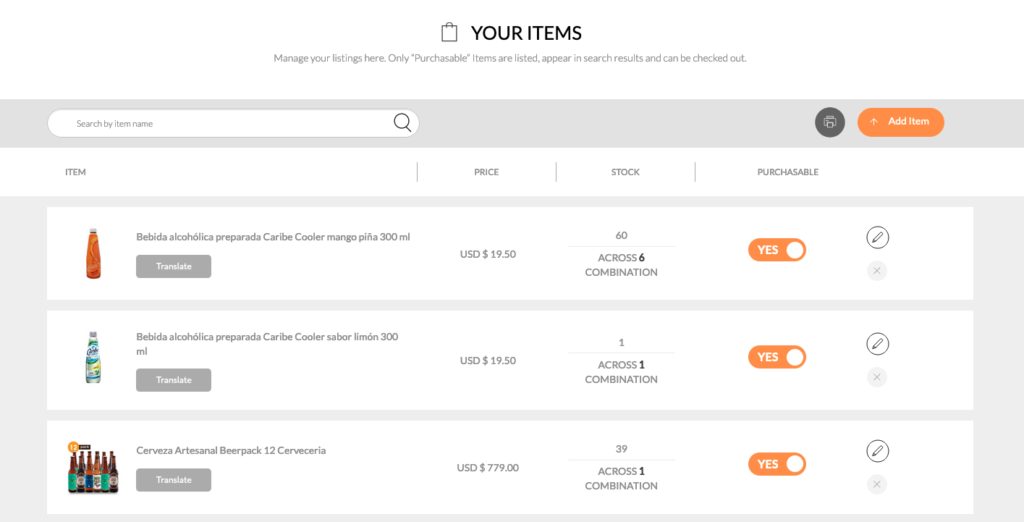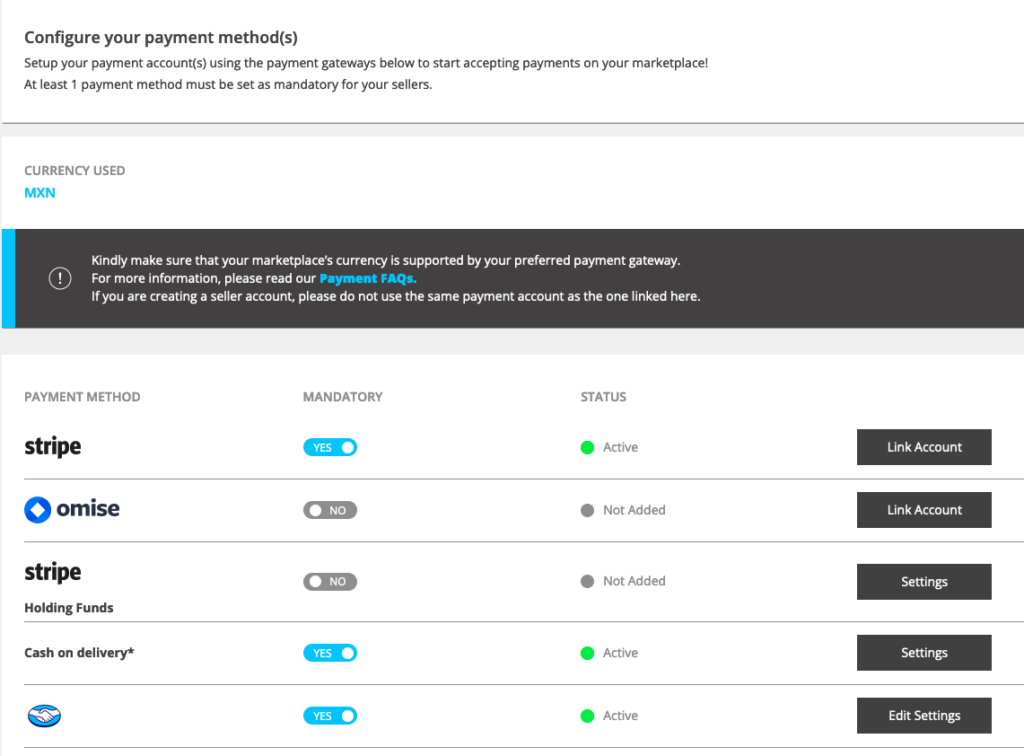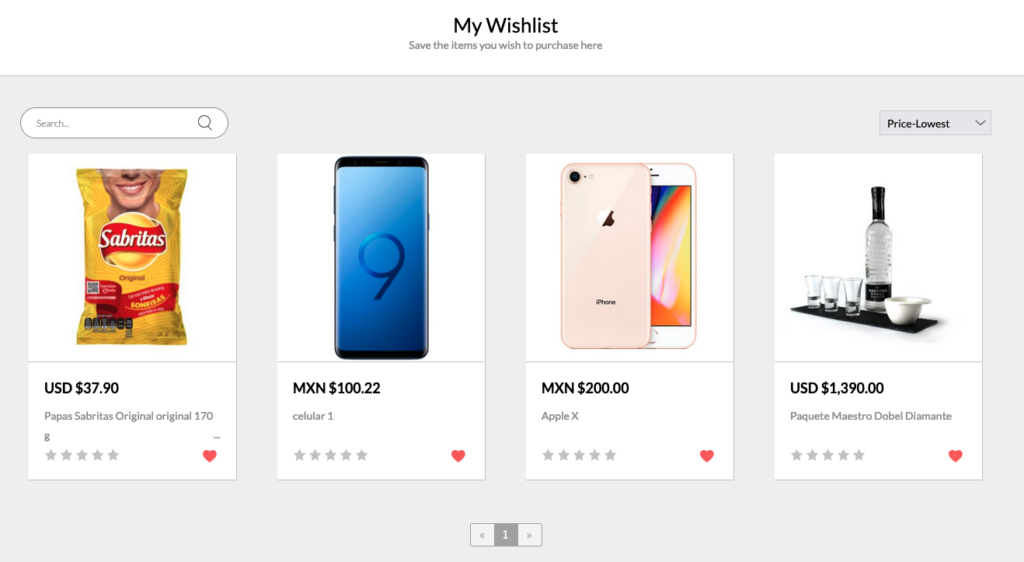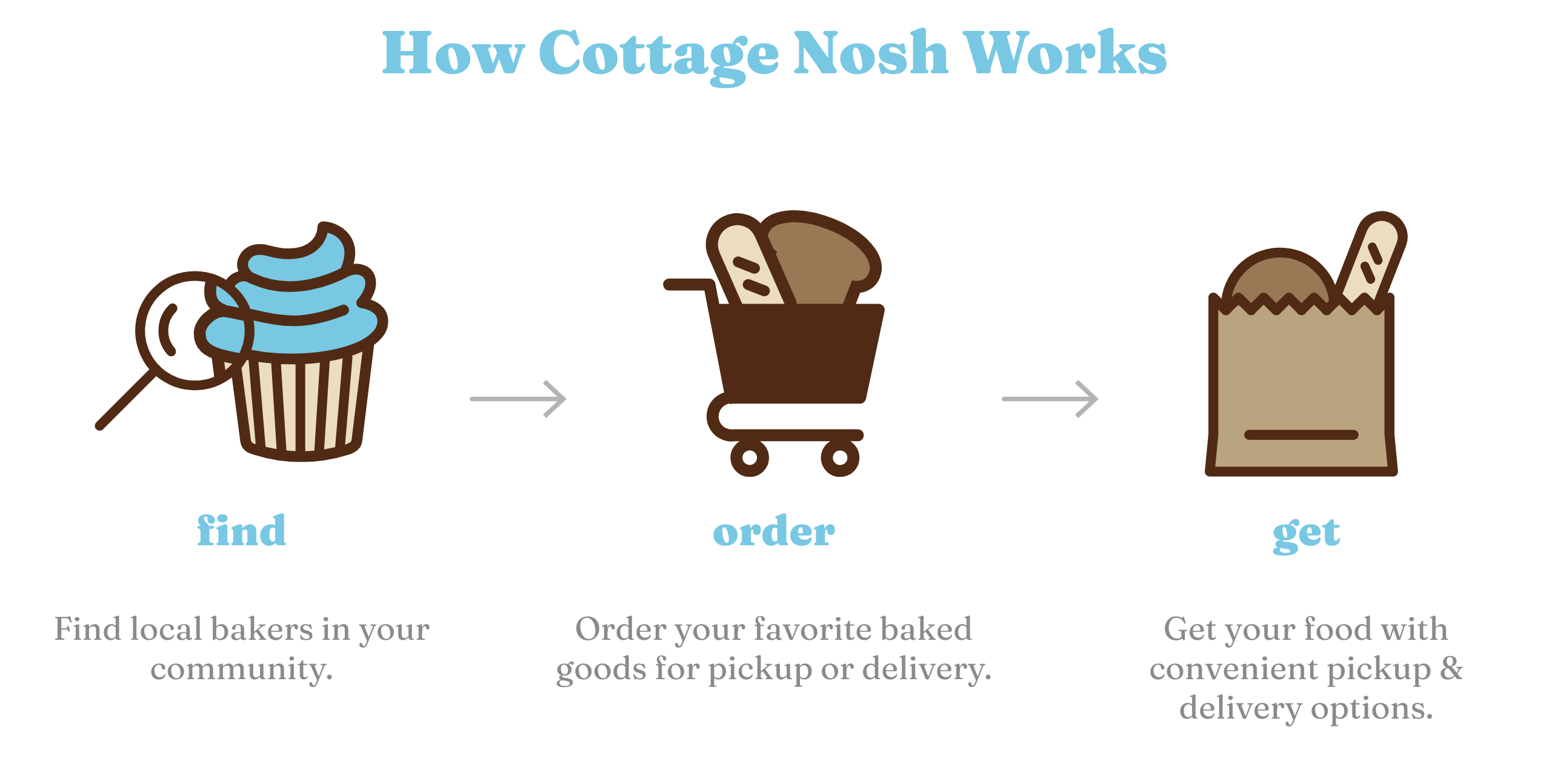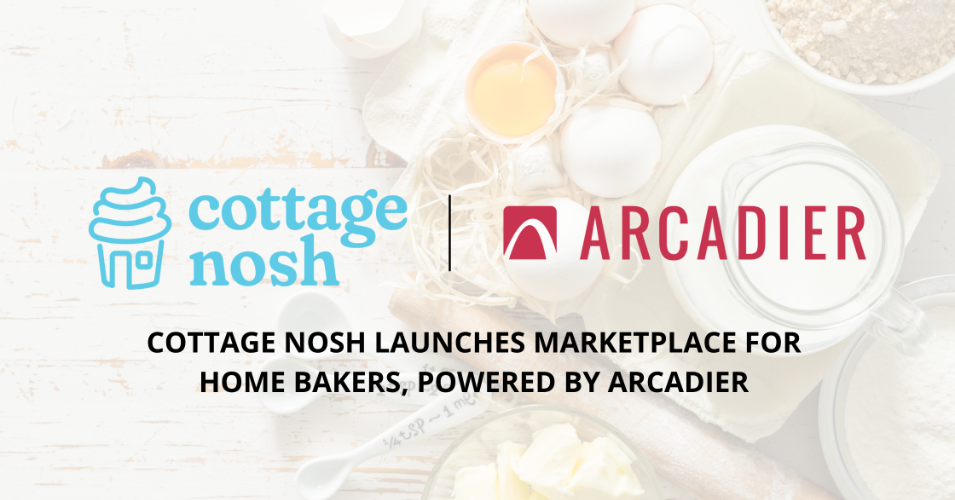Getting Started with Custom Marketplace Development
M
arket conditions over recent years created a perfect storm for an already growing eCommerce industry to tighten its grip on retail market share. While physical sales from bricks and mortar stores showed a steady decline, eCommerce peaked at more than $5 trillion in 2021, a 16% increase from $4.2 trillion in 2020.
As more businesses discover they can no longer ignore the lucrative online marketplace, they are more than eager to take advantage of established platforms like Wish, Shein, eBay, Etsy, and Amazon for getting their products in front of more customers.
However, established marketplaces are not the only way to get your goods in front of an online audience. Custom marketplace development offers many opportunities for you to create your eCommerce multi-vendor platform that you control.
This multi-vendor marketplace guide will discuss why you should consider developing a Custom eCommerce Marketplace, the available development options, and how to get started.

What is a Multi-Vendor Marketplace?
A multi-vendor eCommerce marketplace is the online equivalent of a physical mall where multiple vendors can sell products and services from a single website. A marketplace operator does not own any stock. Instead, they bring vendors together and act as the middleman by connecting buyers with sellers.
In return for bringing buyers and sellers together, the marketplace owner receives a commission from every sale. Sellers gain extra exposure for their brand and access to more online traffic than they could achieve on their own.
Multi-Vendor Marketplace Advantages
How customers shop is evolving, and online purchases feature more and more in consumer spending habits. A multi-vendor eCommerce marketplace creates more options for consumers while also giving them more control over their shopping experience. Here are just a few of the ways an online marketplace can benefit consumers and your business.
Diversify your income strategy: A variety of income strategies become available with a multi-vendor marketplace. For example, you could charge a small commission for every third-party sale, and you can create an extra income stream by charging for a premium listing or for appearing in related products or also bought sections.
Get more and higher-quality customer data: The data collected from every interaction is valuable for determining customer behaviors and identifying trends. High-quality data helps you segment customers more efficiently and improve conversions by delivering a more personalized experience.
Test new products and services: Bringing new brands and products onto the platform offers more opportunities for testing without investing in your own inventory.
Easier to scale: A multi-vendor marketplace is much easier to scale than a single-vendor eCommerce platform, as the need for inventory investment is significantly reduced.
Offer more variety: Today’s consumers crave more options and control over their shopping experience. By bringing on multiple vendors you can increase the amount of variety your marketplace can offer, which will help you reach a wider audience.
Types of eCommerce Marketplaces
An eCommerce marketplace will fit within one of three different models:
- Global Marketplaces
- Horizontal Marketplaces
- Vertical marketplaces
Global Marketplace
A global marketplace caters to an international demographic and sells products from every niche and industry. Amazon is an excellent example of a global marketplace, as it is famous for selling everything to everyone.
Horizontal Marketplace
A horizontal marketplace is more focused on its product range. While it does cater to many different industries, the products on offer all share some common characteristics. For example, every industry needs office furniture or Amazon’s retail products that ship to your home.
Vertical Marketplace
Vertical marketplaces offer specific products to a specialized demographic. There can be many different sources in a vertical marketplace, but only one type of product. Etsy is a good example of a vertical marketplace that caters to the arts and crafts community. UNI Diamonds is another vertical marketplace that sells just one type of product, diamonds, but customers have a wide selection of vendors from which to choose. Also Uber is an example of vertical marketplace, since it only sell ride share.

eCommerce Marketplace Business Models
When you know you are ready to grab your share of the growing eCommerce trade, you will still need to settle on a business model, of which there are three main options:
- Dropshipping
- Franchisee
- Retailer
Dropshipping Marketplace
A dropshipping retailer has an online portal that lists products from many different vendors but does not carry any physical stock. Rather than storing inventory, the order is shipped from another warehouse using the 3rd party seller’s branding.
Dropshipping works through split orders. Third-party sellers purchase in bulk from a manufacturer, but instead of shipping the entire inventory to the third-party seller, a manufacturer will split the order and deliver products directly to a third-party seller’s customers.
Franchisee Marketplace
A franchisee marketplace model works well for localized selling. Franchisees can come together in a single marketplace to offer goods and services online to a local community. The marketplace owner drives sales and traffic through localized advertising, local SEO, and content creation.
Retailer Marketplace
In the retailer marketplace, the operator delivers an online platform where third-party sellers can offer their goods and services. A third-party seller makes the sale, but the product is delivered by another manufacturer, wholesaler, or retailer.
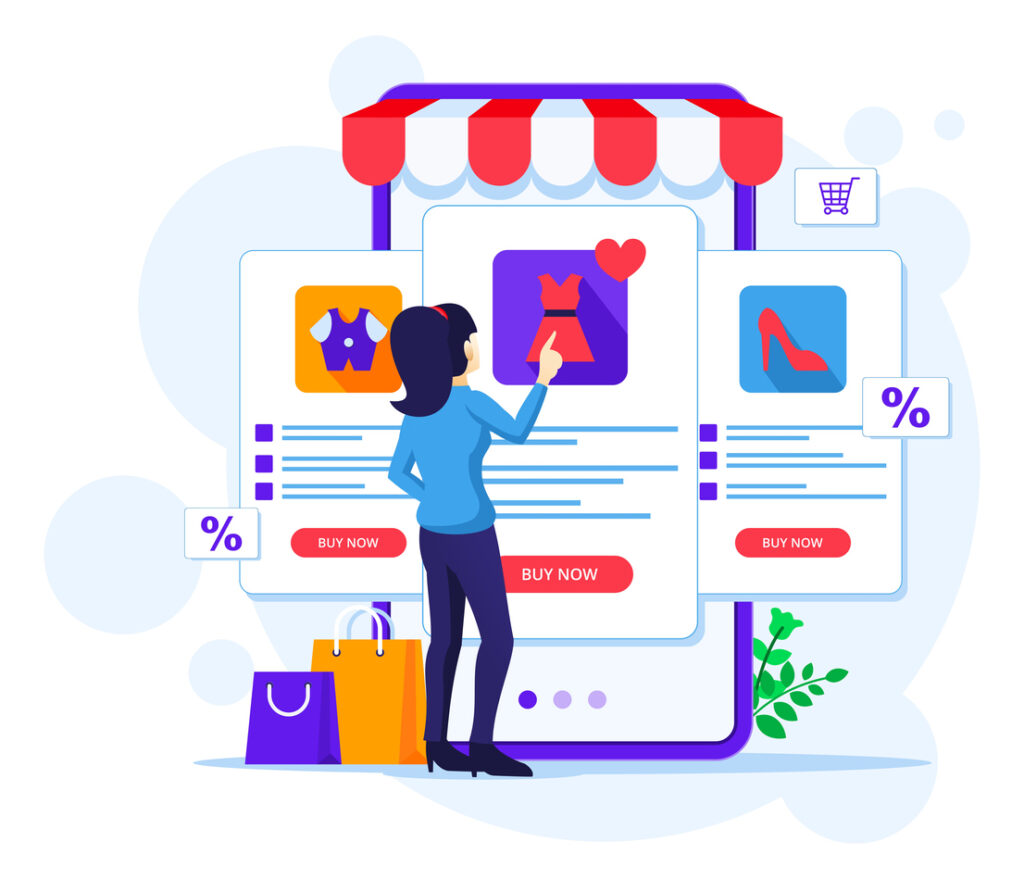
Traditional CMS, Hybrid, or Headless Marketplace? Which is Better for Custom Marketplace Development
Once you have settled on a business model and chosen whether you want to go global or stay local, your next goal will be to select an eCommerce platform that will suit your goals.
Online businesses are tasked with managing a huge volume of content creation and changes daily. Content-driven experiences are increasingly critical for attracting new leads and prospects to your marketplace.
In a traditional CMS, the frontend, where customers do all their browsing and purchasing, are inextricably entwined with the backend where all the data is processed.
A regular CMS is much easier to set up and deploy than headless or hybrid options. However, they are more complex when scaling the business, or migrating to a different platform. They are also limited in features for integrating third-party content from many different vendors.
What is a Hybrid Marketplace?
A hybrid marketplace includes support for multiple content delivery systems. Your content creation team is free to use whatever CMS they are comfortable with, while developers have the capacity to deliver the content across many different channels.
What is a Headless Marketplace?
The headless marketplace decouples the frontend CMS without limiting your ability to publish new content. You can easily reuse content on multiple channels, use any front-end framework to tailor the customer experience, and accept content from multiple vendors without compatibility issues. A headless CMS means you can work your business from a content-first approach because you can use the RESTful API to display it in any way you need.
Advantages of a Headless Marketplace
The eCommerce landscape is always evolving, so having a flexible platform is critical to the survival of a multi-vendor marketplace. Here are just a few advantages you will appreciate when working with a headless marketplace.
Reduced Development and Maintenance
You can use whatever programming language you need for the backend and create your presentation layer for the front end without having to worry about compatibility issues. Developers can work faster because they aren’t confined to the typical limitations of a traditional CMS.
It’s a Low-Cost Future Proofing Solution
A development team can quickly create new functionality on an existing website. For example, let’s say you have created a marketing campaign that uses many different microsites to feature new products or services.
The marketing team can produce and format the content without having to wait for a bunch of new content templates from developers. You are free to manage and change your content at any time across multiple channels.
Flexible Frontend Development
A headless CMS removes the limits for creating an exceptional customer experience because you no longer have design constraints. Unlike a traditional CMS, where tinkering on the frontend can impact the backend processes, the back end of a headless CMS is not impacted by frontend development. Because they are kept separate, your website visitors will enjoy faster loading times for web pages.
Profiting from the rising popularity of eCommerce will mean you need to carefully consider your approach. Our multi-vendor marketplace guide should help you make an informed choice. The products you sell, the vendors you will partner with, and the demographic you serve will all have an influence on custom marketplace development. If you are ready to get more products in front of more customers, call Towa Software today to learn how to get started.

Towa’s Tech Team will turn your marketplace and e-commerce ideas into reality
Towa’s Tech Team provides Nearshore software development services. We’ll streamline the process of developing advanced and customized marketplace solutions for customers. Our top objective is to provide our customers with the means to develop dynamic and user-friendly online marketplaces rapidly.
All of which aids our clientele in attracting more potential customers and converting them into paying customers.
Towa’s Tech Team allows for simplified talent augmentation procedures. Through our Nearshore service, we can connect you with a technical crew that is only a short plane ride away, is in the same time zone as you are, and can communicate with you in your native language.
Talent augmentation for remote engineers allows businesses to realize better economies of scale and, most importantly, greater specialization. With this strategy, companies can focus on what they do best.
Contact us to talk about how Towa can help you.

About Towa
Towa is a leading firm across the United States and Mexico for software engineering and outsourcing, including QA and testing. We offer from Mexico our over +300 engineers capabilities as nearshore delivery model service offerings.
Towa Software has over 20 years of experience to guarantee the quality of every line of code, we are proud of our products and services delivered. We recommend starting small and building trust with your provider before scaling.
As a leading software development outsourcing company in the USA and Mexico, we have extensive experience in many fields including fintech, banking, payments gateways, e-commerce, retail, marketplaces, health care, Omnichannel, and many more.
You can contact us at support@towasoftware.com or give us a call at +1 (210) 787-4525 for more information.









